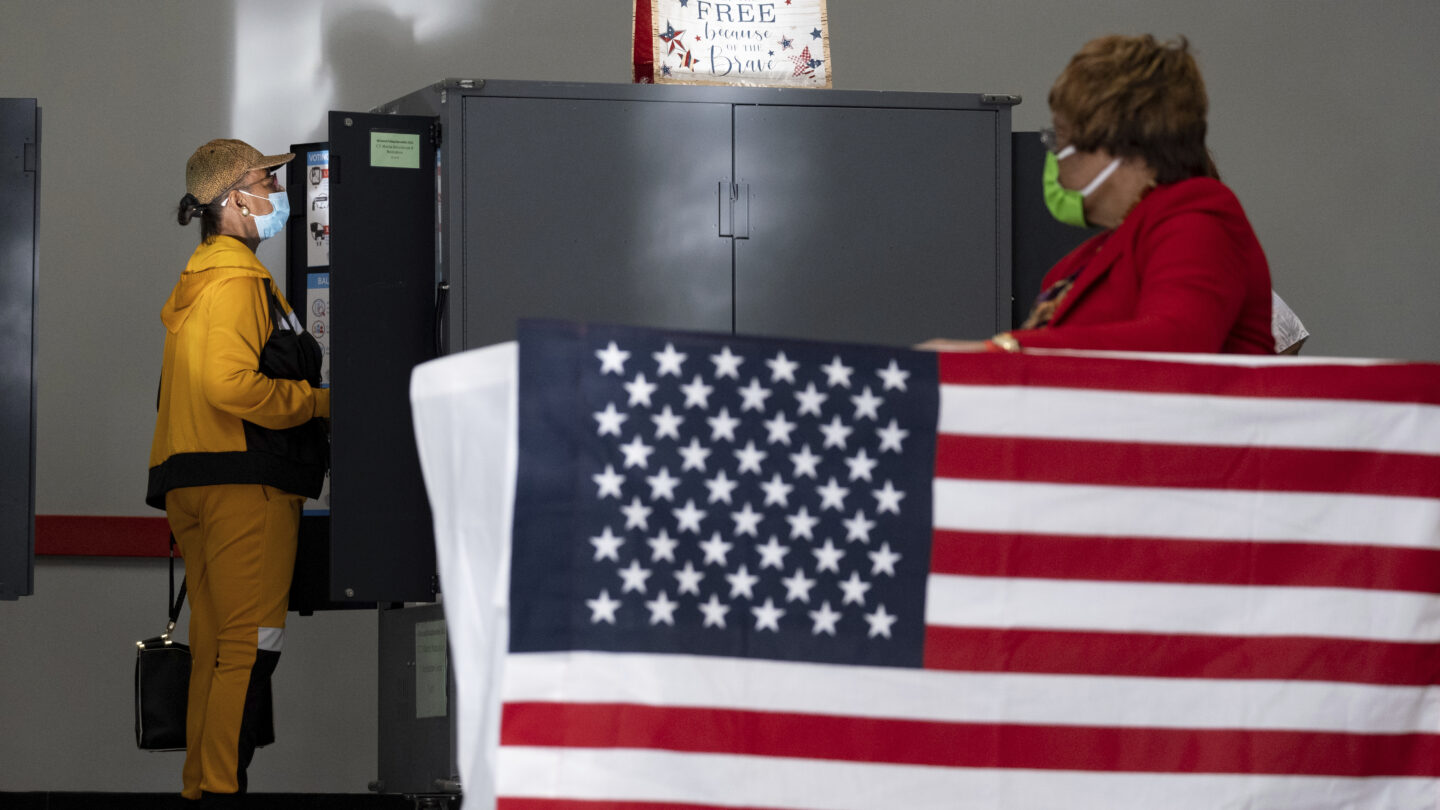Changes to Georgia election rules could get state House OK as 2024 session reaches finish line

Ben Gray / Ben Gray
The Georgia Senate on Tuesday advanced legislation that would give local supervisors more control over Election Day operations, add a new ballot security measure, and create a pilot program to recount every ballot in the 2024 presidential election.
The most contested election bill to make onto the Senate floor on Tuesday was House Bill 1027, which passed by a 33-19 vote as Democratic legislators objected to changing the formula used to determine how many voting machines are set up for Election Day and giving poll watchers more latitude to monitor elections. The two election measures adopted in the Senate on Tuesday will now head back to the House chamber, which would need to give final approval prior to the final day of the Legislative session on Thursday.
The legislation proposes giving election supervisors the authority to determine how many voting machines are needed at each polling station during statewide elections. It would replace the current law that requires one machine for every 250 registered voters in the precinct on Election Day.
Ethics Committee Chairman Max Burns said that the Georgia Association of Voter Registration and Election Officials is requesting that the state give local election officials more discretion after the last statewide election cycles would see upwards of 40% of voters cast ballots during the early voting period and by absentee ballots.
The Senate Democrats Minority report labeled the bill as condoning irresponsible election management by eliminating guardrails surrounding elections that draw the greatest amount of attention and the potential for long lines. The new rule for voting machines could be in place for the Nov. 5 general election that will be headlined by the presidential contest.
Sen. Derrick Mallow, a Savannah Democrat, said that the trend of turnout in recent elections should not be used to justify putting out fewer machines than currently required by law.
“You should be prepared as if all the voters will show up because you don’t know if they’re coming out or not,” Mallow said.
Burns stressed that election supervisors will decide how many voting machines are needed after they have know the early voting turnout.
“My anticipation is they’re going to be generous,” Burns said Tuesday. “The last thing they want is long lines at the polls on Election Day.”
The bill also proposes to expand the access of poll watchers in observing an election being conducted and when votes are being counted.
According to Georgia law, a poll watcher is someone who is trained to observe an election on behalf of an independent or nonpartisan candidate, a political party or a political body.
Burns said that poll watchers deserve to have more access that allows them to be as close as possible as long as they don’t observe confidential information.
Mallow argued that giving too much access to an overzealous poll monitor could become uncomfortable for voters and election workers alike.
In the aftermath of the contentious 2020 presidential election, two Fulton County poll workers became the target of a voting fraud conspiracy theory promoted by Donald Trump and his allies.
Another provision in HB 1207 is intended to strengthen the legal rights of poll workers, election officials and poll watchers by expanding the felony offense for threatening and interfering with their ability to perform election duties.
The Senate on Tuesday also passed by a 47-6 vote House Bill 974, which would require the Secretary of State to develop a pilot program for auditing paper ballots by using human-readable text instead of QR codes.
Burns said state lawmakers have been in contact with the secretary of state’s office regarding having the text readable audit able to recount every ballot cast in the Nov. 5 election.
Additionally, the measure would create an online system that allows the public to inspect scanned ballot images following each election and require each ballot to have a visible watermark indicating it is an official Georgia ballot.








